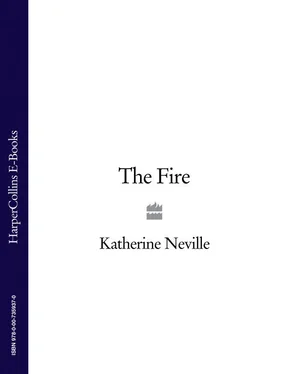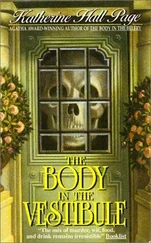Chess was everything to his daughter. Without it, she was a fish taken out of the water. Perhaps this was his fault, too – perhaps it was in her genes. And though everyone had opposed it – most especially her mother – he knew this would surely be the most important tournament of Xie’s young life.
Through it all, and through a week of abysmal cold, snow, and sleet, the awful tournament food – black bread, black tea, and gruel – Xie had remained undaunted. She seemed not to notice anything outside the domain of the chessboard itself. All week, she’d played like a Stakhanoviste, raking in point after point in game after game, a hod carrier stacking up bricks. In the week, she’d lost only one game. They both knew she must not lose another.
He’d had to bring her here, hadn’t he? It was only at this tournament – here at Zagorsk today, where the last game would take place – where his young daughter’s future would be decided. She must win today, this last game at Zagorsk. For they both knew that this was the game that could make Alexandra ‘Xie’ Solarin – who was not yet twelve – the youngest grandmaster of chess, male or female, in the history of the game.
Xie tugged her father’s hand and unwrapped her muffler so she could speak. ‘Don’t worry, Papa. I’ll beat him this time.’
The one she referred to was Vartan Azov, the young chess wizard from Ukraine, only a year older than Xie and the only player in the tournament so far to have defeated her. But he hadn’t really defeated Xie; Xie had lost on her own.
Against young Azov, she had played the King’s Indian Defense – one of her favorites, Solarin knew, for it allowed the valiant Black Knight (in the guise of her father and tutor) to leap to the front over the heads of the other pieces, and take charge. After a daring Queen sacrifice that brought murmurs from the crowd and gave her the center board, it appeared that Solarin’s fearlessly aggressive little warrior would – at the very least – go over the Reichenbach Falls and take young Professor Azov with her in a deathlike embrace. But it wasn’t to be.
There was a name for it: Amaurosis Scacchistica. Chess blindness. Every player had experienced it at one time in his career. They preferred to call it a ‘blunder’ – the failure to spot a truly obvious danger. Solarin had experienced it once, when really young. As he recalled, it felt like falling down a well, tumbling in free fall with no sense of which end was up.
In all the games Xie had ever played, it had happened to her only once. But twice, Solarin knew, was one time too many for a mistake like this. It could not happen again today.
Before they reached the Vestry where the game would take place, Solarin and Xie encountered an unexpected human barricade: a long line of drab women in threadbare over-clothes and babushkas, who had queued up in the snow awaiting the perpetual daily memorial services, outside the charnel house of the famous Troitsky Sobor – the Trinity Church of Saint Sergius, where the saint’s bones were buried. These pitiful creatures – there must have been fifty or sixty of them – were all crossing themselves in the compulsive Orthodox fashion, as if seized by a mass religious frenzy, as they gazed up at the portrait of Our Savior high on the outer church wall.
These women, as they moaned and prayed in the whirling snow, formed a barrier nearly as impenetrable as the armed guards posted high on the parapets. And in the old Soviet tradition, they refused to budge or part ranks to let anyone pass through their queue. Solarin could scarcely wait to get past them.
As he picked up his pace to skirt the long queue, over the women’s heads Solarin glimpsed the facade of the Art Museum, and just beyond, the Vestry and treasury, where they were headed for the game.
The museum’s facade had been festooned with a large, colorful banner displaying a painting and hand-printed words that announced, in Cyrillic and English: SEVENTY-FIVE YEARS OF SOVIET PALEKH ART.
Palekh art were those lacquered paintings that often depicted scenes from fairy tales and other peasant themes. They’d long been the only primitive or ‘superstitious’ art acceptable to the Communist regime and they adorned everything in Russia, from miniature papier-mâché boxes to the walls of the Pioneers’ Palace itself, where Solarin – with fifty other boys – had practiced his defenses and counterattacks for more than twelve years. As he had had no access all that time to storybooks, cartoons, or films, the Palekh illustrations of these ancient tales had been young Aleksandr’s only access to the realm of fantasy.
The painting on this banner was one with which he was well acquainted, a famous one. It seemed to remind him of something important. He studied it carefully as he and Xie picked their way around the long line of zealously praying women.
It was a rendering of the most famous Russian fairy tale, the story of the Firebird. There were many versions that had inspired great art, literature, and music, from Pushkin to Stravinsky. This picture on the banner was the scene where Prince Ivan, hiding in his father the tsar’s gardens all night, finally sights the luminous bird that had been eating his father’s golden apples, and he tries to capture her. The Firebird escapes, leaving just one of her fabulous magical feathers in Ivan’s grasp.
This was the well-known work of Alexander Kotukhin that hung in the Pioneers’ Palace. He was one of the first generation of Palekh artists from the 1930s, who was said to have hidden secret messages within the symbols he used in his paintings that the State censors couldn’t always easily interpret – though the illiterate peasantry could. Solarin wondered what this decades-old message had meant, and to whom.
At last they reached the end of the long line of waiting women. As Solarin and Xie curved back to head toward the Vestry, a stooped old woman in a babushka and threadbare sweater and carrying a tin pail left her place in the queue and brushed past them – still crossing herself fervently. She bumped into Xie, bowed an apology, and continued across the yard.
When she’d passed, Solarin felt Xie tugging his hand. He glanced down to see his daughter extracting a small embossed cardboard placard from her pocket – a ticket or pass to the Palekh exhibit, for it bore the same picture as the banner.
‘Where did this come from?’ he asked, although he was afraid he knew. He glanced after the woman, but she’d vanished across the park.
‘That lady put it into my pocket,’ Xie was saying.
When he looked down again, his daughter had flipped over the card, and Solarin snatched it away. On the back was pasted a small illustration of a flying bird set inside an Islamic eight-pointed star, and three words were printed in Russian:
Reading these words, Solarin felt the blood pulsing in his temples. He glanced quickly in the direction the old woman had gone, but she seemed to have vanished. Then he saw something flicker at the far periphery of the walled fortress; emerging from the copse of trees, she was vanishing again around the far corner of the Tsar’s Chambers – a distance of more than one hundred paces.
Just before she disappeared, she turned to glance over her shoulder directly at Solarin, and he – who had been about to follow her – halted in shock. Even at this distance, he could make out those pale blue eyes, the wisp of silvery-blond hair escaping from her scarf. This was no old crone, but a woman of great beauty and infinite mystery.
And more. It was a face he knew. A face he had imagined he would never see again in this life.
Then she was gone.
He heard himself speak. ‘It cannot be.’
How could it be? People do not rise from the dead. And if they did, they would not look the same after fifty years.
Читать дальше












